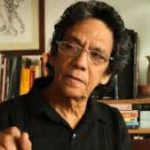(OPINIÓN DESDE CUBA) LA “INCOMPRENSIÓN” DEL PUEBLO CUBANO. PHOTOS.
Para justificar los inevitables cortes del servicio eléctrico en la capital en medio de los apagones que agobian principalmente a las ciudades del interior, se ha apelado a “la solidaridad” de los habaneros. La Habana debe aceptar los cortes de luz de forma solidaria, piden las autoridades. (EFE)
LOS ALEMANES que rechazaban el socialismo no eran capitalistas expropiados ni pequeños burgueses, sino obreros de la construcción. El poeta y dramaturgo Bertolt Brecht, luego de leer los folletos que la Unión de Escritores repartió en la Avenida de Stalin indicando que el pueblo había perdido la confianza del Gobierno y que solo podía ganarla de nuevo “con esfuerzos redoblados”, se preguntó irónicamente lo siguiente en los últimos versos de su poema ‘La Solución’.
“¿No sería más simple
en ese caso para el Gobierno
disolver el pueblo
y elegir otro?”
Obviamente, la solución a las desavenencias de los gobernados con las medidas de los gobernantes no se encuentra en que los que mandan se busquen nuevos súbditos, sino en que se proclamen nuevas políticas y, mejor aún, en que sean otros quienes las dicten.
Los pueblos no tienen porqué ser comprensivos con sus gobernantes, sean estos elegidos democráticamente o designados a dedo por el único partido permitido.
Se pretende convencer a los cubanos de que pueblo, Partido y Gobierno conforman una Santísima Trinidad indisoluble y cualquier fisura constituye una contribución al enemigo
Si las políticas trazadas por quienes ocupan cargos gubernamentales ocasionan enemigos en las relaciones con otras naciones, si como consecuencia de esas malas relaciones se dificulta la comercialización de lo que el país puede vender y la adquisición de lo que necesita comprar, si las leyes se convierten en dificultades para prosperar y asfixian a los emprendedores y si, para colmo, discrepar se convierte en un delito, ser comprensivo se convierte en un acto de complicidad.
Se pretende convencer a los cubanos de que pueblo, Partido y Gobierno conforman una Santísima Trinidad indisoluble y cualquier fisura constituye una contribución al enemigo. Por eso, a los que mandan no les basta con la comprensión: reclaman el aplauso y pretenden que sea entusiasta.
En el clímax de esa pretensión, para justificar los inevitables cortes del servicio eléctrico en la capital en medio de los apagones que agobian principalmente a las ciudades del interior, se ha apelado a “la solidaridad” de los habaneros quienes deberán aceptar, casi celebrar, la ausencia de electricidad para que los provincianos sufran menos.
La solidaridad capitalina podría tener otro rostro menos comprensivo para que los habitantes del interior no se queden solos a la hora de protestar. Pero entonces, ese sería el pueblo que el Gobierno quisiera disolver.
 REINALDO ESCOBAR, periodista Cubano residente en La Habana, Cuba.
REINALDO ESCOBAR, periodista Cubano residente en La Habana, Cuba.
(OPINION FROM CUBA) THE “MISUNDERSTANDING” OF THE CUBAN PEOPLE. PHOTOS.
To justify the inevitable cuts in electricity service in the capital in the midst of the blackouts that mainly overwhelm the cities of the interior, they have appealed to the “solidarity” of the people of Havana. Havana must accept the power outages in solidarity, the authorities ask. (EFE)
THE GERMANS who rejected socialism were not expropriated capitalists or petty bourgeois, but construction workers. The poet and playwright Bertolt Brecht, after reading the pamphlets that the Writers’ Union distributed on Stalin Avenue indicating that the people had lost the confidence of the Government and that it could only win it back “with redoubled efforts”, ironically asked what following in the last lines of his poem ‘The Solution’.
“Wouldn’t it be simpler
in that case for the government
to dissolve the people
and choose another?
Obviously, the solution to the disagreements of the governed with the measures of the rulers is not found in those who rule looking for new subjects, but in the proclamation of new policies and, better still, in others who dictate them.
People do not have to be understanding with their rulers, whether they are democratically elected or handpicked by the only party allowed.
The aim is to convince Cubans that the people, the Party, and the Government make up an indissoluble Holy Trinity and any fissure constitutes a contribution to the enemy
If the policies outlined by those who occupy government positions cause enemies in relations with other nations if as a consequence of these bad relations it is difficult to commercialize what the country can sell and the acquisition of what it needs to buy, if the laws become difficult to prosper and suffocate entrepreneurs and if on top of that, disagreeing becomes a crime, being understanding becomes an act of complicity.
The aim is to convince Cubans that the people, the Party, and the Government make up an indissoluble Holy Trinity and any fissure constitutes a contribution to the enemy. For this reason, understanding is not enough for those who rule: they demand applause and expect it to be enthusiastic.
At the climax of that claim, to justify the inevitable power cuts in the capital in the midst of the blackouts that mainly overwhelm the cities of the interior, they have appealed to the “solidarity” of the people of Havana who must accept, almost celebrate, the absence of electricity so that the provincials suffer less.
The solidarity of the capital could have another less understanding face so that the inhabitants of the interior are not left alone when it comes to protesting. But then, that would be the town that the Government wanted to dissolve.
 REINALDO ESCOBAR, Cuban journalist residing in Havana, Cuba.
REINALDO ESCOBAR, Cuban journalist residing in Havana, Cuba.
Agencies/ 14yMedio/ Reinaldo Escobar, La Habana/ Extractos/ Excerpts/ Internet Photos/ Arnoldo Varona/ www.TheCubanHistory.com
THE CUBAN HISTORY, HOLLYWOOD.







